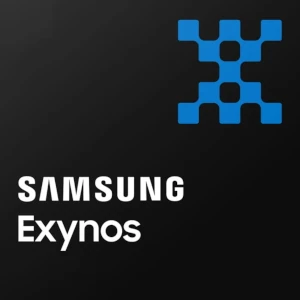HiSilicon Kirin 820 5G vs Samsung Exynos 1380
Welcher Prozessor ist besser? Wir haben HiSilicon Kirin 820 5G und Samsung Exynos 1380 verglichen. Vergleichen Sie, analysieren Sie die technischen Daten. Finden Sie heraus, welche Ergebnisse sie in den beliebten Benchmarks (AnTuTu 10, GeekBench 6 Einzelkern, GeekBench 6 Mehrkern) erzielt haben und wer der Sieger sein wird.
AnTuTu 10
Gesamtpunktzahl
GeekBench 6 Einzelkern
Punktzahl
GeekBench 6 Mehrkern
Punktzahl
Prozessor Kerne und Architektur
| Architektur | 1x 2.36 GHz – Cortex-A76 3x 2.22 GHz – Cortex-A76 4x 1.84 GHz – Cortex-A55 |
4x 2.4 GHz – Cortex-A78 4x 2 GHz – Cortex-A55 |
| Zahl der Kerne | 8 | 8 |
| Befehlssatz | ARMv8.2-A | ARMv8.2-A |
| Lithographie | 7 nm | 5 nm |
| TDP | 6 Watt | 5 Watt |
| Neuronale Verarbeitung | Ascend D110 Lite, HUAWEI Da Vinci Architecture | NPU |
Arbeitsspeicher (RAM)
| Maximaler Speicher | bis zu 12 GB | bis zu 8 GB |
| Speichertyp | LPDDR4X | LPDDR5 |
| Speicherfrequenz | 2133 MHz | 3200 MHz |
| Speicherbus | 4x16 bit | 4x16 bit |
Speicher
| Speichertechnologie | UFS 2.1 | UFS 3.1 |
Grafik
| GPU name | Mali-G57 MP6 | Mali-G68 MP5 |
| GPU-Architektur | Mali Valhall | Mali Valhall |
| GPU-Taktfrequenz | 850 MHz | 950 MHz |
| Ausführung Einheiten | 6 | 5 |
| Shader | 96 | 80 |
| DirectX | 12 | |
| OpenCL API | 2.1 | 2.0 |
| OpenGL API | ES 3.2 | ES 3.2 |
| Vulkan API | 1.2 | 1.2 |
Kamera, Video, Display
| Max. Bildschirmauflösung | 2960 x 1440 | |
| Max. Kameraauflösung | 1x 48MP, 2x 20MP | 1x 200MP |
| Max. Videoaufnahme | 4K@30fps | 4K@30fps |
| Video-Codec-Unterstützung | AV1 H.264 (AVC) H.265 (HEVC) VP8 VP9 |
H.264 (AVC) H.265 (HEVC) VP8 VP9 |
Wireless
| 4G-Netz | Ja | Ja |
| 5G-Netz | Ja | Ja |
| Spitzen-Download-Geschwindigkeit | 1.6 Gbps | 3.79 Gbps |
| Spitzen-Upload-Geschwindigkeit | 0.2 Gbps | 1.28 Gbps |
| Wi-Fi | 6 (802.11ax) | 6 (802.11ax) |
| Bluetooth | 5.1 | 5.3 |
| Satellitennavigation | BeiDou GPS GLONASS |
BeiDou GPS Galileo GLONASS |
Ergänzende Informationen
| Datum der Einführung | 2020 März | 2023 Quartal 1 |
| Teilenummer | S5E8835 | |
| Vertikales Segment | Mobiles | Mobiles |
| Positionierung | Mid-end | Mid-end |
Beliebte Vergleiche:
1
Unisoc SC7731E vs MediaTek Dimensity 9200 Plus
2
Samsung Exynos 9611 vs Qualcomm Snapdragon 865 Plus
3
Samsung Exynos 7880 vs MediaTek Dimensity 7350
4
MediaTek Dimensity 8020 vs Apple A9
5
Google Tensor G2 vs MediaTek Dimensity 9000
6
HiSilicon Kirin 990 5G vs HiSilicon Kirin 9010
7
MediaTek Helio P35 vs MediaTek Dimensity 8400
8
MediaTek Helio G92 Max vs MediaTek Helio A22
9
Qualcomm Snapdragon 782G vs Samsung Exynos 7885
10
MediaTek Helio G35 vs MediaTek Dimensity 1080
